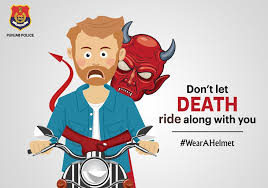OPEN GOVERNMENT UNDER ASSUALT IN LOUISIANA!
Monday, April 29th, 2024
Baton Rouge, Louisiana
OPEN GOVERNMENT UNDER ASSUALT IN LOUISIANA!
Does the average Louisiana citizen have a legal right to follow the internal workings of government in Louisiana? Not just in Baton Rouge at the state capital, but in deliberations that take place by school boards, city councils, police juries and any other sanctioned public body? For the past 50 years, open meetings and public records availability we’re stronger in the Bayou State than any other place in the country.
Now I know that some readers of this column may wonder why making public records available for review is so important? Simply put, every one of us are the losers with public officials hide basic information and records from public view. In the old days, pre-1974, it was often impossible for the average Joe (OK, or Jane) to look over deliberations, records, and even the actual contracts entered into by public officials in the state. I found out the problem firsthand shortly after I was elected to the state Senate back in the early 1970s.
The local Levee board up in Northeast Louisiana had entered into number of contracts with out-of-state firms. They were rumors of inside wheeling and dealing that were called my attention, and I asked to see a list of all the public records involved in the decision of who got the contracts. Even though I was a legislator, I kept getting the runaround. After months of prodding and threatening to bring in the district attorney and force legal action, I finally got the records I was seeking. The process took place behind closed doors, and there was a calculated cover-up to keep the records from public view.
It was an understatement to say that I was mad as all get out. These were public proceedings with public records that should have been available not just to me as a public official, but to any citizen who wanted to review the process.
As a delegate to the 1973 constitutional convention, I authored a provision that specifically protected public access to government records with just a few exceptions. A few years later, I met with then Governor Edwin Edwards and asked for his support in my proposed legislation to make strong Open public meetings and public records legislation a part of Louisiana’s statutes. He readily agreed, and the legislature overwhelmingly voted in favor of these new laws to give the public greater access to the inner workings of state and local government. At the time, Louisiana could proudly boast of having the strongest public records and open meetings laws as compared to any other state in America. It sure was good to be at the top of one of the best lists for a change.
But little by little, opponents to open government started chipping away. Former governor Bobby Jindal slipped through legislation the allowed most of what happened in the Governor’s Office to stay secret. Other state agencies followed Jindal’s lead. Today, instead of being the beacon for openness and leading the nation in transparency, Louisiana ranks a poor 43rd out of the fifty states. And under proposed legislation that imposes more barriers to obtain public records that is currently moving through the legislature, Louisiana will fall to the bottom of the heap by surrounding itself with even greater secrecy.
It’s a crying shame that most of us live in the state that surrounds itself with such concealment. The documents controlled by state and local officials do not belong to them. They are your and my records. That’s why they are called public records. And our right to have access should not be compromised.
Senator Russell Long put it this way when he was representing Louisiana. “A government by secrecy benefits no one. It injures the people it seeks to serve; it damages its own integrity and operation. It breeds distrust, dampens the fervor of its citizens and mocks their loyalty.”
The singing group, The Fifth Dimension sang it best. “Let the sunshine, Let the sunshine in.” Let’s hope our legislators get the message.
Peace and Justice
Jim Brown
Jim Brown’s syndicated column appears each week in numerous newspapers throughout the nation and on websites worldwide. You can read all his past columns and see continuing updates at http://www.jimbrownusa.com. You can also listen to his weekly podcast at www.datelinelouisiana.com.






